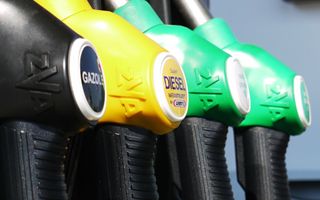(Finance) – Has officially started Yesterday the alignment of excise duties on fuels, already proposed in the structural plan of the budget of last autumn. The Finance Commission of the Senate expressed itself on the provision that proposes “a tendential rapprochement, in a congruous period of time and to the extent between 1 and 2 cents of euros, of the rates of the excise duty applied to diesel and petrol”.
Takes shape, Therefore, the progressive and slow realignment which, with operation, should bring both excise duties to 67, 25 cents.
On balance, The ONF – Federconsumatori National Observatory has updated the repercussions of this operation for families (estimating the effects on shopping for 2 full per week).
Diesel – With an increase, with full speed, of about 6 cents per liter of the excise donate, the final price (considering the current costs) would rise by about 7 cents per liter, with an increase of about 67.00 euros per year.
Gas – By assuming, on the other hand, a decrease of about 6 cents per liter of the excise duty on petrol, the final price would drop by about 7 cents, with a saving for a petrol car of about 84.00 euros per year.
Immediately, Instead, when the first rise in the excise donation on the diesel, the repercussion of the families of families, at the current costs, amounts to about +2 euros in full of diesel and a saving of as many -2.20 euros for the full of petrol.
What, however, is not carefully evaluated is the indirect repercussion of this operation. It is true that the representatives of the Commission reassure that “the realignment of excise duties will not however concern the freight of freight transport”, but this is true only in relation to the means and methods of exempted transport or admitted to the reduced payment of the excise duties referred to in your (Consolidated Law on excise duties), so we wait to see if appropriate and necessary reformulations are planned.
If we think that in our country Over 84% of the goods are transported by rubber, but, according to current legislation, only a small part of the means dedicated to this falls within the categories that can benefit from a reduction in excise duties, it is easy to think that the repercussions on prices will be huge (moreover in a period in which the raw material is in strong tension). A growth in the cost of the diesel of this reach, with operational, would entail aggravations on the prices of consumer goods, of at least 68.00 euros per year per family.
In short, the families will once again be expected. It is right to respond positively to the request to discourage the most polluting means of transport, but you have to do it carefully, without creating damage on other fronts. Since the excise duties on fuels in Italy are among the highest in Europe (about +17 cents compared to the EU + UK average), it would have been enough to implement the desired realignment simply by cutting the excise duties on 11 cents petrol, leaving those on diesel unchanged, and above all by scrolling both from the application of VAT.
(Photo: David Roumanet / Pixabay)
